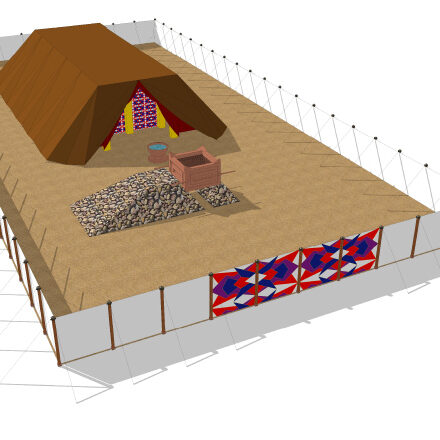While Standing (Six Feet Apart) on One Foot
Shabbat March 28, 2020
As we enter in the book of Leviticus, I am struck by the parallels we see today in our current health crisis.
Leviticus is a long series of commandments about the sacrificial service at the Tabernacle. There are laws about sin offerings, free will offerings, peace offerings, and so forth. The thing about these laws, though, is that no one can ever do them again since they are confined to the Temple in Jerusalem and the Tabernacle.
When the Jews were expelled from Jerusalem in 586 BCE and then again in 70 CE, first by the Babylonians and then by the Romans, they needed a system that would take the place of the sacrifices. How to worship God without the sacrifices was, in no small measure, an existential question to the Jewish people. Once again, Jewish genius came to the rescue.
Over time the Pharisees built upon what the exiles from the Babylonian exile created. Those first exiles created the foundations of the worship service and the early Pharisees created the oral traditions so vital for the continuation of the people. One of those radical transformations was the actual codification of the worship service (which would evolved over the next thousand years) with the amazing insight that speaking the sacrifices instead of doing them was equal in the eyes of God. In other words, liturgy and prayer took the place of the sacrifices.
How is that relevant today?
At this hour we have also had to adapt. There is discussion among Jewish thinkers that we are at something of an inflection point. The use of online study and remote services has created a new reality for the time being. Authorities in Jewish law are searching the sources for previous times when the community was in danger and those sources give us guidance as to what to do. Some examples are the need to quarantine even though to do say some prayers require a minyan, the responsibility we have for one another to protect one another even by staying away, and so forth. Things that were no kosher in the past have now become kosher.
Our community at Beth Miriam is forever changed and when this ends how can we but look at each other with awe and wonder and gratification that we all did our part in protecting each other, comforting each other and being there for one another. Soon – please, God – we will be embracing one another as friends even though some of us only met online at services. Fundamentally, the way we look at each other and work with each other has been changed. And, I submit, for the better.
We have been here for each other and we will continue to do so. Our kahal, community, has become a kehillah kedosh, a holy community in so many important ways that will only become apparent as the weeks go on.
The holiness is within us and the holiness is between us. Hang on to what is holy because that holiness can fill our souls with hope in these troubled times
